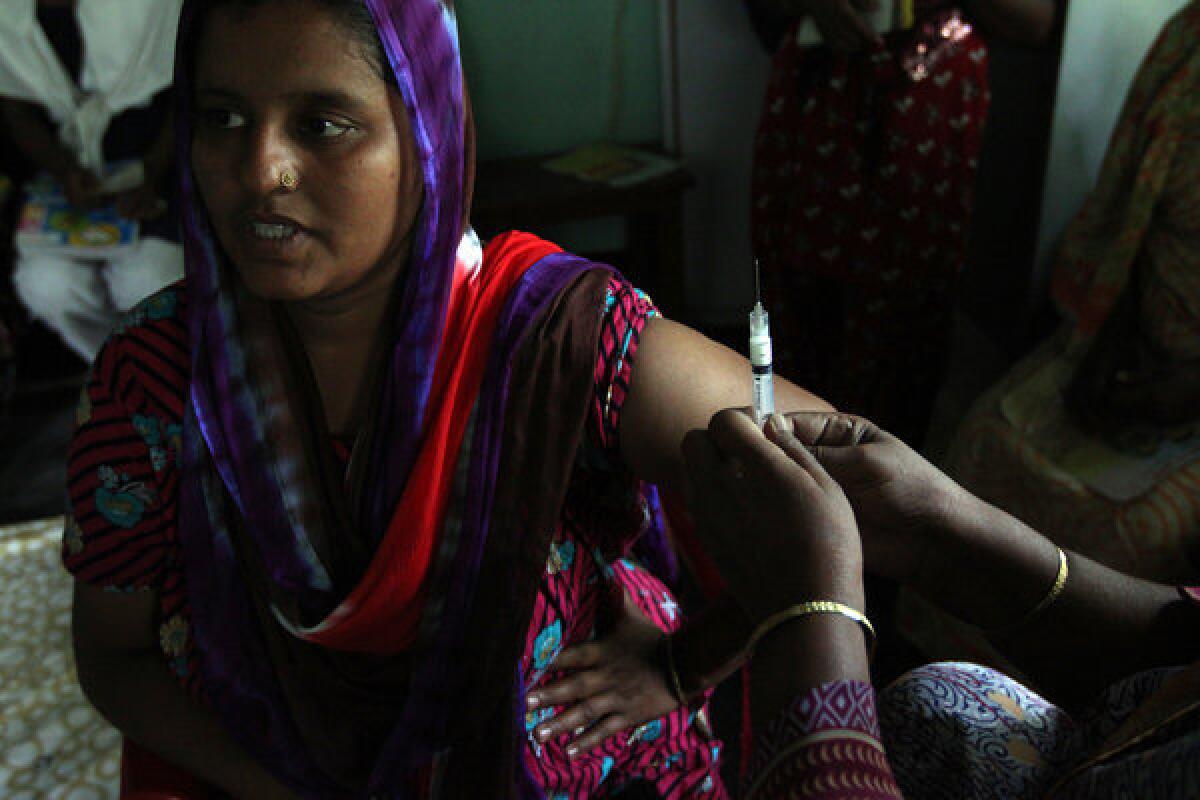Global population growing faster than expected, U.N. says

- Share via
This just in: Humanity is growing faster than we thought.
In advance of World Population Day, United Nations demographers have once again revised official projections -- upward. This meticulous band of number crunchers doesn’t mean to be alarmist, but its statistics can be startling:
--Nigeria, the West African nation slightly larger than Texas, is on track to surpass the United States as the world’s third-most populous country by 2050. The size of its population may rival that of China by the end of the century, unless something dramatic happens.
--The number of people living on the African continent is set to nearly quadruple by the end of the century, rather than merely tripling, as previously projected.
--The world’s population is on track to reach 9.6 billion by midcentury and nearly 11 billion by 2100, which is 700 million more than was projected two years ago.
The reason for the higher figures? A slew of recent household surveys in African countries revealed the average number of children per woman was higher than previously estimated, said Francois Pelletier, chief of the U.N.’s population estimates and projections section.
In some countries, “a high level of fertility appears to have risen even higher,” Pelletier said. In others, “we realized the earlier estimates were too low.”
A seemingly modest change from an average of four children per woman to five, he said, can produce a dramatic upswing in coming decades due to the power of compound growth.
The prospect of Africa’s population of 1.1 billion exceeding 4 billion has surprised some demographers, because Africa is not following the pattern of falling fertility around the world. Women on average around the globe have half as many children as they did in the 1960s.
The counter-trend reflects what the Population Council’s John Bongaarts calls “a lost decade of family planning in Africa.”
Some of the programs and money once devoted to providing contraceptives to poor women have been scaled back or diverted to fight the AIDS epidemic, he said. As these programs have fallen in prominence at the World Bank and other international developing organizations it has left the matter adrift, which is now showing up in the statistics.
In Nigeria, 10% of married women of childbearing years are taking birth control pills, using intrauterine devices or other forms of modern contraception. That compares with 72% of married women of reproductive age in the United States.
More than 220 million women in the developing world say they would like to avoid pregnancy but are not using modern contraception, according to analysis of household surveys. Many of them are in Africa.
The British government, the Bill & Melinda Gates Foundation, and other governmental and nonprofit organizations met in London last year to reinvigorate the effort to provide contraceptives to women who want them. They are developing plans to reach 120 million women who don’t have access to contraceptives by the year 2020.
The recent flurry of activity encourages Bongaarts, who remains concerned about rapid population growth increasing hunger and poverty in Africa as poor nations struggle with limitations on food, water and farmland.
The latest U.N. projections, he said, offer “a warning sign that people in Africa are in more trouble than we thought. We should take population and family planning more seriously.”
A grant from the Pulitzer Center on Crisis Reporting supported this project.



